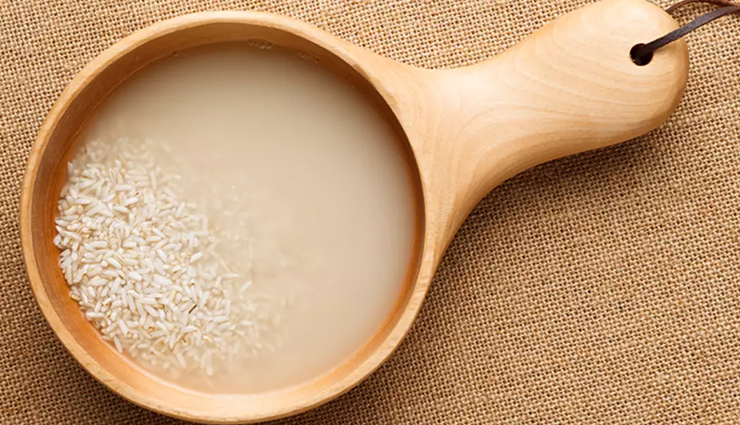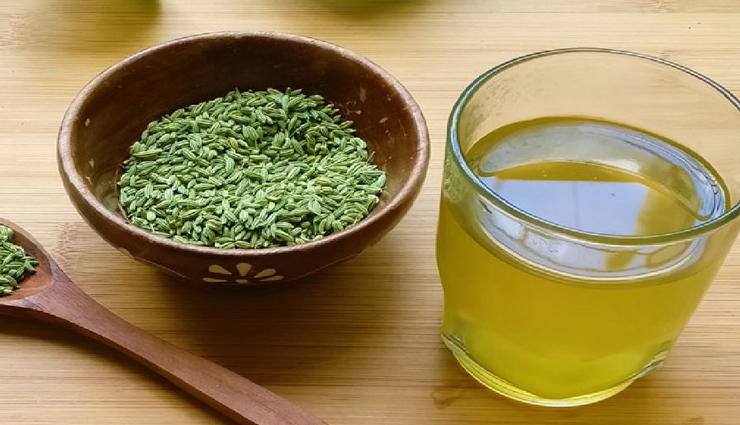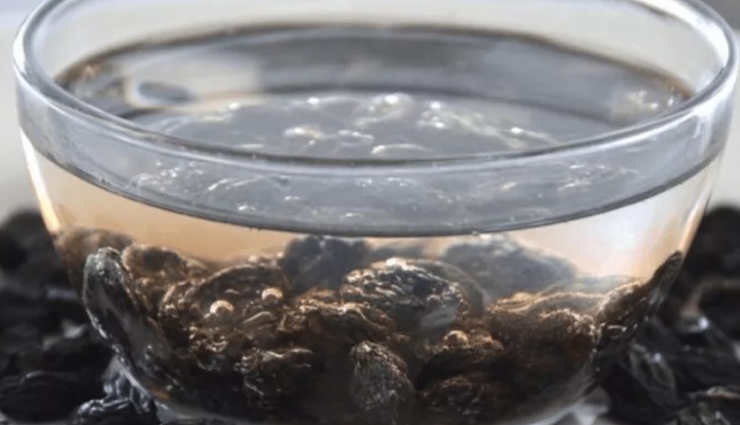- Home›
- Healthy Living›
- 3 Desi Drinks From Grand-Mother That Will Help You Manage Heavy Periods At Home
3 Desi Drinks From Grand-Mother That Will Help You Manage Heavy Periods At Home
By: Priyanka Maheshwari Sun, 06 Aug 2023 4:58:19

Heavy periods, also known as menorrhagia, refer to menstrual periods that involve excessive bleeding, prolonged duration, or both. While the experience of a heavy period can vary from person to person, it is generally defined as:
- Excessive Bleeding: Soaking through a tampon or pad every hour for several consecutive hours.
- Prolonged Duration: Menstrual periods lasting longer than 7 days.
There can be various underlying causes of heavy periods, including:
- Hormonal Imbalance: Fluctuations in hormonal levels, particularly estrogen and progesterone, can lead to abnormal uterine lining growth and shedding, resulting in heavier periods.
- Uterine Fibroids: These are noncancerous growths in the uterus that can cause heavy bleeding and pain.
- Polyps: Uterine or cervical polyps are small, benign growths on the uterine lining or cervix that can lead to heavy bleeding.
- Adenomyosis: This condition occurs when the tissue that lines the uterus starts to grow within the muscular walls of the uterus, causing heavy bleeding and pain.
- Endometriosis: In endometriosis, tissue similar to the uterine lining grows outside the uterus, often causing heavy periods, pain, and fertility issues.
- Pelvic Inflammatory Disease (PID): An infection of the female reproductive organs can cause inflammation and heavy bleeding.
- Use of Certain Medications: Blood thinners and some types of hormonal medications can contribute to heavy bleeding.
- Medical Conditions: Conditions like thyroid disorders and bleeding disorders can lead to heavy periods.
- Cancer: While rare, certain uterine or cervical cancers can cause heavy menstrual bleeding.
- IUDs: In some cases, the use of intrauterine devices (IUDs), especially copper IUDs, can lead to heavier periods.

# Rice Water For Heavy Periods
Rice water is a traditional remedy that some people believe can help alleviate heavy menstrual bleeding, although scientific evidence supporting its effectiveness is limited. Rice water is the liquid that remains after boiling or soaking rice, and it is sometimes used for its potential nutritional and soothing properties. However, before attempting any home remedy, it's essential to consult with a healthcare professional, especially if you're dealing with heavy periods or any other health concern.
While rice water is not a proven or widely accepted remedy for heavy periods, if you still want to try it, you can do so by following these general steps:
1. Prepare Rice Water:
- Start by rinsing a cup of rice thoroughly to remove any dirt or impurities.
- Place the rinsed rice in a bowl and add about 2-3 cups of water.
- Let the rice soak in the water for 15-30 minutes, allowing some of the nutrients to leach into the water.
- After soaking, gently swish the rice around in the water and then strain out the rice, collecting the rice water in a separate container.
2. Consumption:
- If you decide to consume rice water, you can drink a small amount (about half a cup) of the strained rice water.
- You can drink the rice water as it is, or you can flavor it with a pinch of salt or a touch of honey for taste.
3. Frequency:
- If you choose to consume rice water, you can do so once a day. However, keep in mind that there is limited scientific evidence to support its effectiveness for heavy periods.
4. Caution:
- While rice water is generally considered safe to consume, it's important to ensure that the rice is thoroughly rinsed and clean to avoid any contaminants.
- If you have allergies to rice or any digestive sensitivities, be cautious when trying rice water.
- If you experience any adverse reactions or discomfort after consuming rice water, stop using it and consult a healthcare professional.
5. Consult a Healthcare Professional:
- Before attempting any home remedy, especially for a medical concern like heavy periods, it's crucial to consult a healthcare provider. They can provide personalized advice and recommend appropriate treatments based on your specific situation.

# Fennel Water For Heavy Periods
Fennel water is another natural remedy that some people believe might help alleviate menstrual symptoms, including heavy periods. Fennel is a herb known for its potential to have anti-inflammatory and antispasmodic effects, which could potentially provide some relief from menstrual discomfort. However, like other natural remedies, the scientific evidence supporting its effectiveness for heavy periods is limited. Before trying fennel water or any other home remedy, it's important to consult with a healthcare professional, especially if you have a medical condition or are taking medications.
If you're considering using fennel water for heavy periods, here's a general guide on how to prepare and consume it:
1. Prepare Fennel Water:
- Start by boiling a cup of water.
- Add a teaspoon of crushed fennel seeds to the boiling water.
- Allow the fennel seeds to steep in the water for about 5-10 minutes.
- Strain the mixture to remove the fennel seeds, leaving you with fennel-infused water.
2. Consumption:
- Once the fennel water has cooled down to a comfortable temperature, you can drink it.
- You can consume fennel water 1-2 times a day, as desired.
3. Caution:
- While fennel is generally considered safe, some individuals may have allergies to it. If you're allergic to plants in the Apiaceae family (which includes carrots, celery, and parsley), you might also be allergic to fennel.
- If you have any pre-existing medical conditions, are pregnant or breastfeeding, or are taking medications, consult a healthcare provider before incorporating fennel water into your routine.
4. Monitor Results:
- Keep in mind that individual responses to natural remedies can vary. Some people might find relief from fennel water, while others might not experience noticeable changes.
- If you experience any adverse reactions or discomfort after consuming fennel water, stop using it and consult a healthcare professional.

# Black Raisin Water For Heavy Periods
Black raisin water is another natural remedy that some people believe might help with managing heavy periods. However, it's important to note that scientific evidence supporting its effectiveness for this purpose is limited. Before attempting any natural remedy, especially for a medical concern like heavy periods, it's crucial to consult with a healthcare professional to ensure that the chosen remedy is safe and appropriate for your specific situation.
If you're interested in trying black raisin water for heavy periods, here's a general guide on how to prepare and consume it:
1. Prepare Black Raisin Water:
- Start by washing a handful of black raisins thoroughly to remove any dirt or impurities.
- Place the washed raisins in a bowl and add about 2 cups of water.
- Let the raisins soak in the water overnight or for at least 8-12 hours.
- During this time, the raisins will absorb water and release some of their nutrients into the liquid.
2. Consumption:
- After soaking, strain the raisins from the water, leaving you with the infused black raisin water.
- You can consume the infused water on an empty stomach in the morning.
3. Caution:
- While black raisins are generally safe to consume, some individuals may have allergies to dried fruits or specific types of raisins. If you have known allergies, be cautious.
- If you have any underlying medical conditions, are pregnant or breastfeeding, or are taking medications, it's important to consult a healthcare provider before incorporating black raisin water into your routine.
4. Monitor Results:
- Keep in mind that individual responses to natural remedies can vary. Some people might find relief from black raisin water, while others might not experience noticeable changes.
- It's also important to note that the effectiveness of natural remedies is not guaranteed, and they are not a substitute for evidence-based medical treatments.





